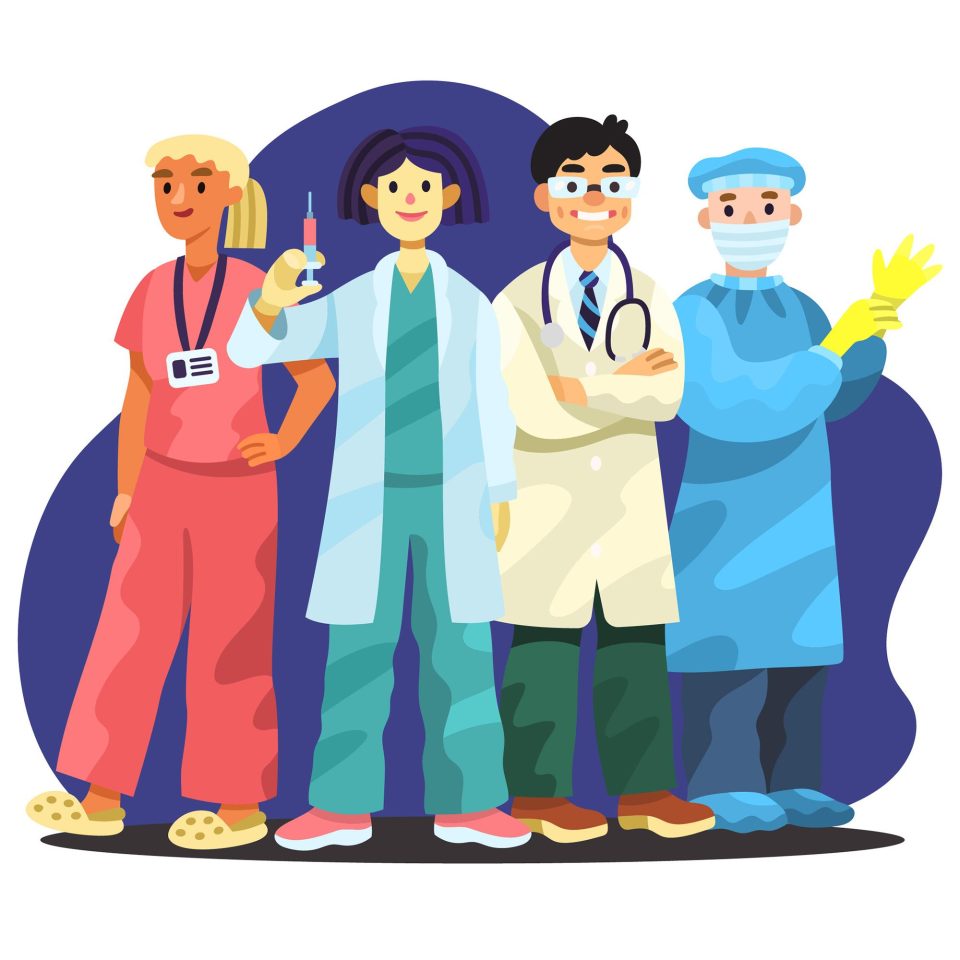Do you have a passion for health but need to know what kind of career to pursue? If yes, then look no further! With so many options available today, deciding which health profession best fits you can be difficult. But fear not – we’ve got you covered with some exciting and diverse roles in the field of healthcare that are sure to provide something that speaks to your passions and pursuits. In this blog post, we will discuss 7 health careers you should try for. Keep reading for a few advantageous health careers you should try this year!
1. Registered Nurse – Providing patient care in hospitals, medical offices, and homes.
Registered nurses are highly valued community members, critical in providing patient care in hospitals, medical offices, and even homes. With access to the latest medical equipment and resources, they possess the skills to attend to patients’ needs in these varied settings. RNs take vital signs, assist physicians with procedures, coordinate treatments and medications, administer tests, answer patient inquiries and educate the public about health concerns. Their compassion for those suffering from health-related issues is essential for improving their patients’ quality of life. Nurses collaborate with other healthcare professionals to provide comprehensive care quickly and efficiently. By taking on this critical role for communities big and small, registered nurses are helping enrich lives every day.
2. Physical Therapist – Helping patients recover from injuries or illnesses through exercise, stretches and massages.
A physical therapist is a healthcare professional that provides non-invasive treatment for patients with disabling medical conditions or injuries. They work with patients to heal pain, improve movement and increase strength safely, using exercise, stretches and massages tailored to each patient’s needs. Physical therapists help the healing journey by educating patients on posture, proper body mechanics, and proper recovery techniques when home from the initial session. With specialised training and years of experience, they use their skills to help patients get back to their everyday life as soon as possible while also providing ongoing support so that each recovery process yields positive results.

3. Medical Laboratory Technician – Collecting and examining bodily fluid samples to diagnose diseases and other medical conditions.
Working as a medical laboratory technician is essential in the medical field. They collect, examine and process bodily fluid samples to identify diseases and other medical conditions. The responsibility of an MLT continues beyond analysing the example; they must ensure that the results of any tests taken are communicated effectively with physicians to assess a patient’s condition promptly and accurately. Furthermore, they must keep accurate records of all activities, including maintaining instrument performance logs and quality control measures. All these duties require considerable knowledge and training in methods like centrifugation, chromatography and PCR. Diagnostic procedures are nearly as successful and accurate with medical laboratory technicians as they are today.
4. Dietitian – Creating meal plans, educating people on nutrition and monitoring food consumption to help prevent diseases.
A dietitian is highly trained to provide advice and guidance on all aspects of nutrition – an essential element of staying healthy. Dietitians create meal plans to address nutritional needs while considering individual tastes and preferences. They provide education on proper nutrition and help individuals create realistic habits that promote long-term health and well-being. In addition, they monitor food consumption to ensure caloric balance, sodium intake, and other dietary needs that may be required for optimal health. By doing so, dietitians can help prevent disease and alert healthcare professionals to potential issues as soon as possible so appropriate care can be provided.
5. Occupational Therapist – Developing programs for people with physical or mental disabilities to improve their motor skills, coordination, and daily living activities.
Occupational therapists use evidence-based methods to develop individualised programs tailored to the needs of people with physical or mental disabilities. These programs, designed to help clients improve their ability with motor skills, coordination and daily living activities, often include manual techniques such as massage or specialised exercises; or activities like role-playing and problem-solving. In addition, occupational therapists also help clients modify their environment to make tasks easier and more accessible. As an essential part of their job, occupational therapists observe how their clients respond to treatment – which is fundamental for ensuring successful outcomes.
6. Pharmacist – Dispensing prescription medications and advising customers on medication use.
Pharmacists provide an invaluable service to people in communities across the globe. Not only do they dispense prescription medications so that their customers can get the treatments they need, but they also advise on how to take those medications effectively. Beyond that, pharmacists are available to double-check drug interactions and answer any other questions patients might have — giving them the knowledge and comfort of knowing they’re taking their medication appropriately. With pharmacy technicians backing up these vital services, pharmacists help ensure that people are safe in taking the medicines prescribed by their doctors.

7. Paramedics- They are highly skilled, dedicated individuals who serve as first responders to medical emergencies.
The job of a paramedic requires a mastery of multiple disciplines and expertise in trauma, airway management, pharmacology, and diagnostic and therapeutic procedures. This can be physically and emotionally demanding, as paramedics must often make life-or-death decisions quickly to provide the best care for their patients. But the rewards of the job are substantial too. Paramedics get to save lives, impact people’s lives and communities, and feel a deep satisfaction from knowing they’ve done something significant with their careers. To enrich your career, you can do some training on becoming a paramedic.
Conclusion
When it comes to medical professionals, registered nurses, physical therapists, medical laboratory technicians, dietitians, occupational therapists, pharmacists and paramedics, all form part of the team in helping us stay healthy. These health careers 7 provide an essential aspect of care, contributing to our well-being and overall health. It’s obvious why these professions are crucial in keeping society healthy today and shaped into what it can become tomorrow. Read more here, Good luck!

